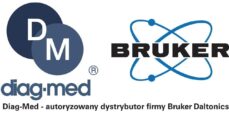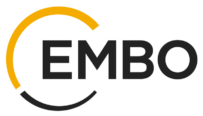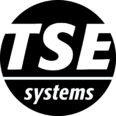About conference
Registration for passive participation or poster presenting is prolonged till May 10th 2024
Nencki Conference for Life Science – Focus on Lipid Metabolism
Lipids represent the most energy-dense component of our diets. Therefore, they serve as the most desirable material to store energy. Apart from acting as fuel molecules, different lipids play multiple structural and signaling functions in the cells. Lipid overload or defects in the enzymatic and signaling machinery regulating lipid handling cause multiple disorders ranging from metabolic diseases (obesity, diabetes, atherosclerosis, and metabolic fatty liver disease), through different types of cancers to immune disorders. Our understanding of the molecular mechanisms governing different aspects of lipid metabolism is far from being completed. Moreover, the role of lipid metabolism in pathophysiology of many processes is not completely understood. Thus the Nencki Conference for Life Science will focus this year on lipid metabolism. The meeting will cover multiple aspects connected to the metabolism of lipids:
- Role of lipid droplets in the regulation of cellular metabolism and response to stress
- Lipid metabolism in carcinogenesis
- The impact of lipids on the immune response
- Pathophysiological processes caused by dysregulation of lipid handling
- Technical advances in the identification of processes regulating lipid homeostasis.
Nencki Conference will provide a unique opportunity for discussion of cutting-edge science between researchers at different stages of their careers. Four lecture sessions and two poster events will provide an opportunity networking and the exchange of scientific ideas.
Nencki Conference for Life Science Series
The Nencki Institute is a flagship research institution of the Polish Academy of Sciences. Conferences and workshops Organized by Nencki Institute focus on scientific excellence and propagate international networking, equality, and diversity.
Main informations
Venue: CN Conference Hall at Nencki Institute of Experimental Biology of the Polish Academy of Sciences (3 Pasteur Street, 02-093 Warsaw, Poland).
The conference fee is based on the type of registration: Young Scientist – PhD students (50€), Academic (100€), Non-academic (100€).
Thank you all for submissions and abstracts. Abstracts will be assessed by Scientific Board until April 30th 2024.
We would like to inform you about the extension of registration for passive or active – poster participation deadline.
You can still register on https://conference.nencki.edu.pl/registration until May 10th 2024, 23.59.59 CET
Program
Thursday
-
Registration
-
Opening remarks
Agnieszka DobrzyńGrzegorz Sumara -
Session 1 - Lipid droplets in (not only lipid) homeostasis
Grzegorz Sumara (chair)-
Keynote lecture - Cellular mechanisms of lipid homeostasis: From lipid droplets to ferroptosis
James Olzmann -
Long talk - Lipid droplets – managing fat in the battle against stress
Toni Petan -
Short talk – Physiological ordered packing of cholesterol easters in lipid droplets in mammalian tissue described by Cryo Serial Lift-Out
Wioleta Dudka -
Short talk – Mechanisms of lipid-evoked regulation of lipid droplet proteostasis in the small intestine
Magdalena Wit -
Short talk – Vasoprotetive activity of ATGL-dependent lipolysis and cPLA2- PGI2 pathway in the context of postprandial endothelial dysfunction
Magdalena Sternak -
Short talk – Lipid droplets in vascular wall - an integral component of vascular response to endothelial inflammation
Marta Pacia -
Flash Talk - Unrevealing translation surveillance pathways of brown adipocytes
Toufic Kassouf -
Flash Talk - Proteomic approach unravels E3 ligase, TRIM32, as a central mediator β-adrenergic signalling in adipocytes
Katia Al Ghoz -
Flash Talk - Loss of unconventional myosin VI affects lipid metabolism in hindlimb skeletal muscle
Lilya Lehka
-
-
Corporate presentation (TSE Systems and AnimaLab): New trends in automated metabolic, behavioral, and physiological phenotyping of rodents
Holger Russig, PhD -
Lunch break and Poster session 1
-
1. Proteomic approach unravels E3 ligase, TRIM32, as a central mediator β-adrenergic signalling in adipocytes
Katia Al Ghoz -
2. Oxidized phosphatidylcholine derivatives regulate endocytosis and secretion of CD14 in mouse macrophages
Ichrak Ben Amor -
3. Role of fatty acids metabolized by stearoyl-CoA desaturase in cardiomyocyte maturation
Volodymyr Balatskyi -
4. Cholesterol content in brains of suicide completers
Monika Czapiewska -
5. The potential benefits of using ACAT inhibitor in 5-fluorouracil-based colon cancer therapy – an in-vitro study
Aleksandra Czumaj -
6. Metformin reduces palmitotoxicity by promoting perilipin 5-mediated lipid droplet-mitochondria coupling in pancreatic β-cells
Aneta Dobosz -
7. GIP_HUMAN[22-51] suppresses glucagon mRNA expression and proliferation in alpha TC1 cells
Joanna Fiedorowicz -
8. Characterization of the in vitro model of obesity based on human adipocytes
Katarzyna Pietraszek-Gremplewicz -
9. Inhibition of stearoyl-CoA desaturase 1 activity controls mitochondrial damage and bioenergetics by regulating cardiolipin composition in palmitate-stressed pancreatic β-cells
Justyna Janikiewicz -
10. Protein Kinase D2 promotes chylomicron-mediated transport of triglycerides
Freeha Kanwal -
11. Unrevealing translation surveillance pathways of brown adipocytes
Toufic Kassouf -
12. Towards understanding metabolic sgnificance of PACS-2 E209K mutation. A comparison of lipid profile in fibroblasts from PACS-2 syndrome patient versus healthy twin
Maria Kendziorek -
13. Regulation of ROMK2 Channel Activity by Acidic Lipids: Insights from Proximity Biotinylation and Molecular Docking Studies
Piotr Koprowski -
14. Neuronostatin, but not somatostatin modulates proliferation and differentiation of rat primary brown preadipocytes
Małgorzata Krążek -
15. Loss of unconventional myosin VI affects lipid metabolism in hindlimb skeletal muscle
Lilya Lehka -
16. Secosteroid hormone vitamin D regulates lipid metabolism genes via genomic and non-genomic pathways in squamous cell carcinoma cells – analyses of transcriptomic data
Anna Olszewska -
17. Analysis of very long chain fatty acids in lung in a mouse model of IKSHD disease using GC-MS
Agata Zwara -
18. Primary biliary cholangitis symptoms are reduced in liver specific Mcpip1 knock- out mice after treatment with Lactobacillus rhamnosus
Katarzyna Trzos
-
-
Session 2 - From lipids to immune response
Tomasz Wypych (chair)-
Keynote lecture - Cardiolipin remodellin by Tafazzin controls inflammatory T cell responses
Martin Vaeth -
EMBO Young Investigator Lecture - Intestinal intraepithelial lymphocytes regulate intestinal and organismal metabolism
Mahima Swamy -
Short talk – Nutritional iron deficiency elicits unique metabolic adaptations of splenic red pulp macrophages
Raghunandan Mahadeva -
Short talk – Can lipids disturb the beneficial effect of Lactobacillus strains through an altered profile of bacterial proteins?
Anna Maria Ogrodowczyk -
Flash talk – In search of lipid mediator fingerprint reflecting endothelial dys function in murine models; comparison of bioanalysis of free and esterified fractions
Agnieszka Kij -
Flash talks – Metabolite X modulates metabolism of the lung during inflammation
Magdalena Wolska
-
Friday
-
Session 3 - Lipid metabolism and signaling – role in cancer and beyond
Magdalena Wit (chair)-
Keynote lecture - Targeting Lipid Metabolism in Cancer
Almut Schulze -
EMBO Young Investigator Lecture -A chemical proteomics approach towards mapping lipid pathways
Siddhesh Kamat -
Short talk – Metabolic adaptations triggered by impairment of cytochrome c oxidase
Alena Pecinova -
Short talk – Lipid metabolism disorders in colorectal cancer
Tomasz Śledziński -
Short talk – Unraveling the link between Neuropathy Target Esterase NTE/SWS, lysosomal storage diseases, inflammation, abnormal fatty acid metabolism, and leaky brain barrier
Mariana Tsap -
Short talk – Advances in lipidomics for disease research
Tomas Cajka -
Flash talks – The role of HAX1 protein in lipid metabolism and lipid droplet formation in cancer cells and its impact on metastasis
Ewa Grzybowska -
Flash talks – The changes in lipid metabolism in metastatic melanoma cells resistant to BRAF/MEK inhibitors
Magdalena Kot -
Flash talks – The effect of LXR or SERCA2 activation on liver metabolism and diet-induced steatohepatitis in Mice
Adam Olichwier
-
-
Lunch break and Poster session 2
-
19. In search of lipid mediator fingerprint reflecting endothelial (dys)function in murine models; comparison of bioanalysis of free and esterified fractions
Agnieszka Kij -
20. The role of HAX1 protein in lipid metabolism and lipid droplet formation in cancer cells and its impact on metastasis
Ewa Grzybowska -
21. The changes in lipid metabolism in metastatic melanoma cells resistant to BRAF/MEK inhibitors
Magdalena Kot -
22. Unraveling the Role of MK5 in the Regulation of Skeletal Muscle Biology
Carlos Acosta -
23. Unraveling molecular mechanism and metabolic consequences of the ERK3/MK5-dependent signaling in adipose tissue
Katia Al Ghoz -
24. Western Diet's impact: from NAFLD and Liver Damage to Alzheimer's Development via the Liver-Brain Axis
Justyna Domańska -
25. Inhibition of Protein Kinase D2 in the intestine protects against hyperlipidemia and atherosclerosis
Filip Dziaczkowski -
26. Changes in serum fatty acid profile after orthotopic liver transplant
Aleksandra Hliwa -
27. Diacylglycerol kinase-ε determines pro-inflammatory response of macrophages to LPS
Aneta Hromada-Judycka -
28. Tumours of different invasiveness secrete small extracellular vesicles of distinct lipid composition influencing CD1a-restricted T cell responses
Mikołaj Klimczuk -
29. Meeting Human Needs: The Power of Transgenic Camelina sativa
Sylwia Klińska-Bąchor -
30. Metabolite X modulates metabolism of the lung during inflammation
Magdalena Wolska -
31. Ultrastructural defects in multiple cell types in zebrafish model of Niemann-Pick type C disease
Małgorzata Korzeniowska -
32. Inhibition of synthesis of very long chain fatty acids enhance apoptosis in primary cultures of glioblastoma multiforme
Oliwia Lange -
33. Effect of fatty acids synthesized by ELOVL3 on skeletal muscle development
Viktor Navrulin -
34. The effect of LXR or SERCA2 activation on liver metabolism and diet-induced steatohepatitis in mice
Adam Olichwier -
35. The changes in lipid metabolism in endometrial cancer
Yelyzaveta Razghonova -
36. ERK3 deletion promotes Mitochondrial function and Oxidative Capacity in Skeletal Muscle
Abdus Saboor Shah -
37. Unraveling the link between Neuropathy Target Esterase NTE/SWS, lysosomal storage diseases, inflammation, abnormal fatty acid metabolism, and leaky brain barrier
Halyna Shcherbata
-
-
Session 4 - Lipids in metabolic diseases
Mariusz Więckowski (chair)-
Keynote lecture - Addressing heterogeneity and the role of genetics in patients with MASLD
Marcin Krawczyk -
Long talk - Platelet-derived lipids promote insulin secretion of pancreatic β cells
Katarzyna Kolczyńska Matysiak -
Short talk – Western diet impairs liver function but does not lead to obesity or diabetes in bank voles
Alaa Hseiky
-
-
Closing remarks, Short talks, and Poster prizes
Agnieszka DobrzyńGrzegorz Sumara -
Open Scientific Picnic of the Nencki Institute
Speakers
-

Almut Schulze
German Cancer Research Center (DKFZ)Heidelberg, Germany -

James Olzmann
Department of Nutritional Sciences & Toxicology, University of CaliforniaBerkeley, USA -

Martin Vaeth
Würzburg Institute of Systems Immunology, Max Planck Research Group, JMUWürzburg, Germany -

Marcin Krawczyk
Universitätsklinikum des SaarlandesHomburg, Germany -

Toni Petan
Jozef Stefan InstituteLjubljana, Slovenia -

Mahima Swamy
University of DundeeDundee, United Kingdom -

Siddhesh Kamat
Indian Institute of Science Education and ResearchPune, India -

Katarzyna Kolczyńska Matysiak
Dioscuri Centre for Metabolic Diseases, Nencki Institute of Experimental Biology, PASWarsaw, Poland
Organizers
-

Agnieszka Dobrzyń
Nencki Institute of Experimental Biology, PASWarsaw, Poland -

Grzegorz Sumara
Nencki Institute of Experimental Biology, PASWarsaw, Poland -

Tomasz Wypych
Nencki Institute of Experimental Biology, PASWarsaw, Poland -

Mariusz Więckowski
Nencki Institute of Experimental Biology, PASWarsaw, Poland -

Magdalena Wit
Nencki Institute of Experimental Biology, PASWarsaw, Poland -

Olga Sumara
Nencki Institute of Experimental Biology, PASWarsaw, Poland -

Anna Bombińska
Nencki Institute of Experimental Biology, PASWarsaw, Poland
Info
Venue
CN Conference Hall at Nencki Institute of Experimental Biology of the Polish Academy of Sciences (3 Pasteur Street, 02-093 Warsaw, Poland).
How to get to Nencki Institute?
By bus
From the airport
From “Lotnisko Chopina – Przyloty“ bus stop (Arrivals) you might take a bus 175 (Pl.Piłsudskiego direction) or bus 188 (Gocławek Wschodni direction). Trip should take 16 minutes. Get off at “Szpital Banacha” bus stop at Żwirki i Wigury Street. From there it is less than a 10 – minute walk to the Institute
You can buy a ticket from the ticket machine either at a bus stop or in a bus. Only card payments are accepted. A 20-minute ticket costs 3,40PLN.
From train station
You might take a bus 521 from “Dw. Centralny“ bus stop (Szczęśliwice direction) and get off at “Och-Teatr” bus stop at Grójecka Street. From there it is less than a 5 – minute walk to the Institute.
By tram
From the central train station you might take a tram 7, 9 or 25 from “Dw.Centralny” tram stop (P+R Al.Krakowska or Banacha direction) and get off at “Och-Teatr” tram stop at Grójecka Street. From there it is less than a 5 – minute walk to the Institute.
By taxi
You might catch a taxi cab outside the terminal or central train station.
You can also call any of the taxi corporations: Ele TAXI +48 22 811 11 11, Radio Taxi +48 22 19191, WAWA Taxi +48 22 333 4444; SAWA Taxi +48 22 644 44 44; Super Taxi +48 22 19 622.The cost of the ride from the airport to the Institute should be approximately 12 EUR (50 PLN). The ride should take 10-15 minutes.
Accommodation (suggestions)
-
Radisson Blu Sobieski Hotel ****
Plac Artura Zawiszy 1, 02-025 Warsaw
info.sobieski.warsaw@radissonblu.comDistance from venue: 1,3 km
-
Ibis Warszawa Reduta ***
Bitwy Warszawskiej 16, 02-366 Warsaw
h7125@accor.comDistance from venue: 1,3 km
-
Campanile Varsovie ***
Towarowa 2, 00-811 Warsaw
reservation.warsaw@campanile.comDistance from venue: 1,6 km
-
Holiday Inn Express Warsaw - The Hub ***
Rondo Ignacego Daszyńskiego 2a, 00-843 Warsaw
hiex.warsawhub@ihg.comDistance from venue: 2,2 km
-
Radisson Collection Hotel *****
Grzybowska 24, 00-132 Warsaw
info.warsaw@radissoncollection.comDistance from venue: 3,3 km
If you wish to get a discounted rate for room&breakfast:
Single room: 590 PLN
Double room: 660 PLNplease do not hesitate to contact conference2024@nencki.edu.pl for further details.
-
Novotel Warszawa Airport ****
1 Sierpnia 1, 02-134 Warsaw
h0527-RE@accor.comDistance from venue: 2,9 km
-
Sofitel Warsaw Victoria *****
Królewska 11, 00-065 Warsaw
h3378@sofitel.comDistance from venue: 4,1 km
General info
- Official currency: polish zloty (PLN)
- COVID-19 travel restrictions were lifted in Poland. Therefore, providing proof of vaccination, recovery from COVID-19 or a negative test result is not required. For more info visit reopen.europa.eu
- Electricity: 220 ~ 230V, 50 Hz
Accessibility
We strive to host accessible event that enable all individuals, including individuals with disabilities, to engage fully. For inquiries about accessibility, please contact conference2024@nencki.edu.pl
About poster session
- Poster size: max. A0
- Poster orientation: vertical
- Language of the talks and posters: English
If your poster is accompanied by Flash Talk please prepare 3-minute presentation and upload it to the desktop before your session starts.
Contact
Nencki Institute of Experimental Biology of the Polish Academy of Sciences
3 Pasteur Street, 02-093 Warsaw, Poland
conference2024@nencki.edu.pl








